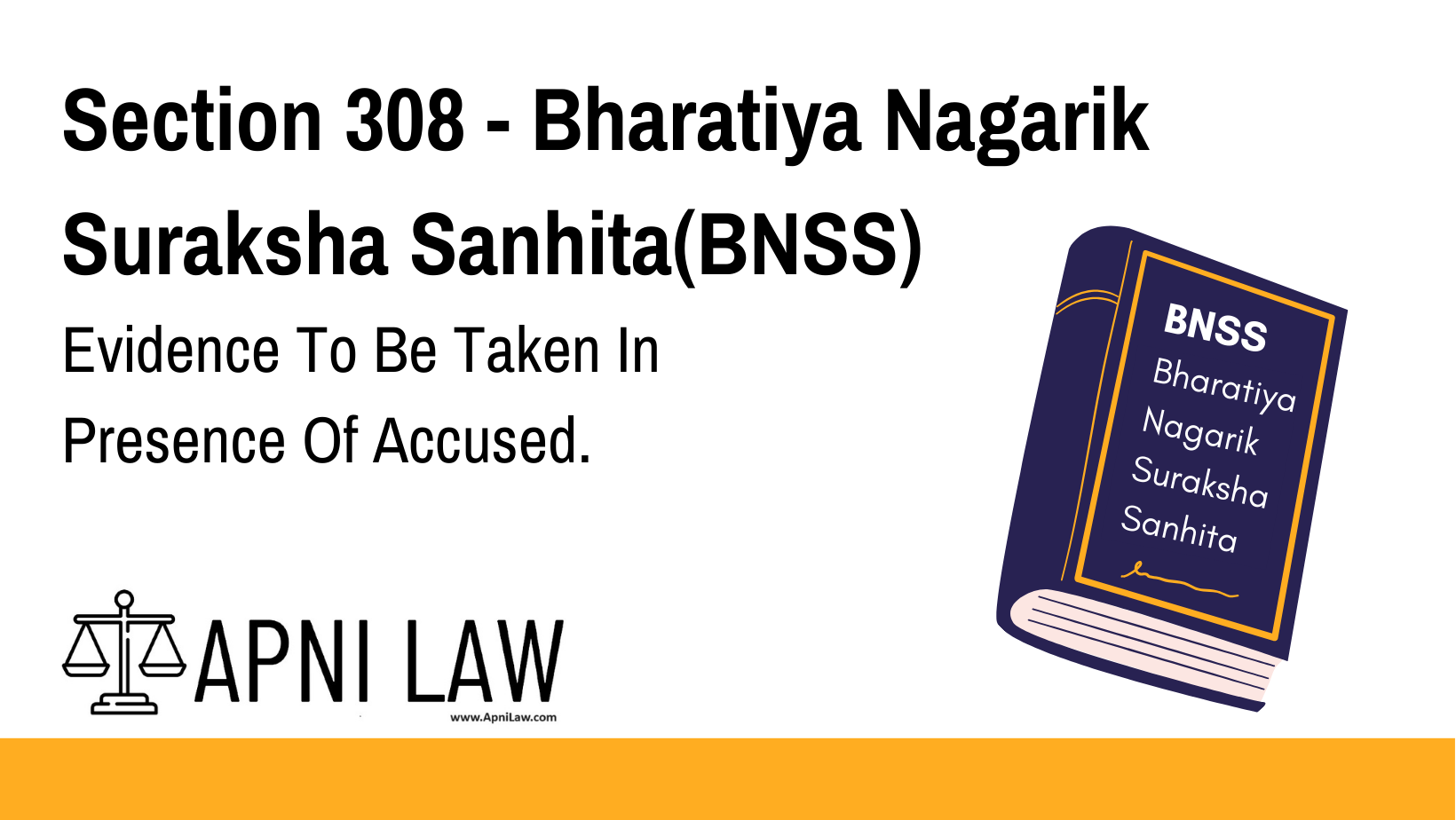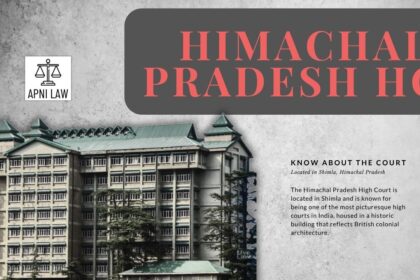Bharatiya Nagarik Suraksha Sanhita (BNSS) – Section 308
Code: Section 308 BNSS
308.
Except as otherwise expressly provided, all evidence taken in the course of the trial or other proceeding shall be taken in the presence of the accused, or, when his personal attendance is dispensed with, in the presence of his pleader:
Provided that where the evidence of a woman below the age of eighteen years who is alleged to have been subjected to rape or any other sexual offence, is to be recorded, the court may take appropriate measures to ensure that such woman is not confronted by the accused while at the same time ensuring the right of cross-examination of the accused.
Explanation.— In this section, “accused” includes a person in relation to whom any proceeding under Chapter IX has been commenced under this Sanhita.
Explanation of Section 308 BNSS
Section 308 BNSS establishes the fundamental requirement that evidence in a trial or proceeding must be taken in the presence of the accused, or if the accused is not present, in the presence of his legal representative (pleader). This principle is key to safeguarding the right of the accused to confront the evidence and witnesses against him.
Key Points:
- Presence of the Accused or Pleader:
The default position is that all evidence must be recorded with the accused present in court. If the accused is not personally present—whether by waiver or other dispensation—the evidence should be recorded in the presence of his pleader to ensure that his interests are represented. - Special Provisions for Minors in Sexual Offence Cases:
The section provides a specific safeguard for cases involving a woman below the age of eighteen who is alleged to have been subjected to rape or another sexual offence. In such cases, the Court is empowered to take measures to ensure that the young woman is not forced into direct confrontation with the accused. This is balanced by the requirement to preserve the accused’s right to cross-examine, ensuring that the principles of fairness and justice are maintained. - Inclusive Definition of “Accused”:
The explanation clarifies that the term “accused” extends to any person against whom a proceeding under Chapter IX has been initiated under this Sanhita, thus covering a broad range of criminal proceedings.
Illustration
Example 1: Standard Trial Scenario
In a criminal trial, a witness is examined in the presence of the accused. This ensures that the accused has the opportunity to observe the testimony, which is essential for his right to confront and cross-examine the witness. If for any reason the accused’s presence is dispensed with, his pleader is present to safeguard his interests.
Example 2: Protection of a Minor Witness in a Sexual Offence Case
In a case involving allegations of rape against a minor girl (below eighteen years), the Court, while ensuring that the witness’s testimony is properly recorded, takes additional measures such as using a separate room or video link. These measures protect the minor from direct confrontation with the accused, while still allowing the accused to exercise his right to cross-examine her testimony indirectly.
Common Questions and Answers on Section 308 BNSS
1. Why must evidence be taken in the presence of the accused?
- Answer:
Taking evidence in the presence of the accused is crucial for upholding his right to confront the witnesses and challenge the evidence against him, thereby ensuring a fair trial.
2. What happens if the accused is not present in court?
- Answer:
If the accused is not present, his pleader must be present during the recording of evidence. This ensures that the accused’s interests are represented and that he does not lose the opportunity for cross-examination.
3. What special measures can be taken when a minor is a witness in a sexual offence case?
- Answer:
The Court may adopt appropriate measures—such as recording the testimony in a separate room or via video conferencing—to ensure that the minor witness is not directly confronted by the accused while still preserving the accused’s right to cross-examine her indirectly.
4. How is “accused” defined under this section?
- Answer:
For the purposes of this section, “accused” includes any person in relation to whom any proceeding under Chapter IX of the Sanhita has been commenced.
Conclusion
Section 308 BNSS ensures that the fundamental right of the accused to be present during the taking of evidence is maintained throughout the judicial process, or alternatively, that his interests are safeguarded through the presence of his pleader. Moreover, it provides necessary protective measures for minor witnesses in sexual offence cases to prevent direct confrontation with the accused, while still allowing for cross-examination. These provisions work together to uphold fairness and justice in criminal proceedings. For further legal insights and detailed guidance on evidentiary procedures, visit ApniLaw.








